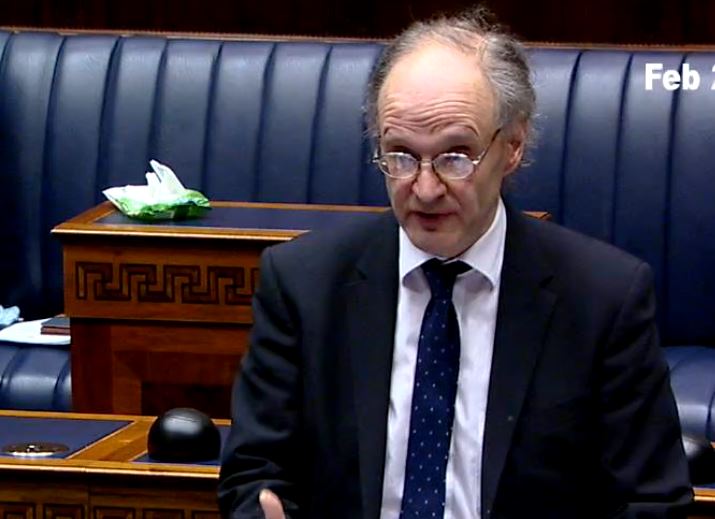
By Michael McHugh, PA
An algorithm will not be used to predict student grades this summer, an exam chief in Northern Ireland said.
All GCSE, AS and A-level tests have again been cancelled this year due to the coronavirus pandemic.
Schools, pupils and parents protested when the statistical algorithm used to standardise results reduced more than a third of A-level grades predicted by teachers last year.
The Council for the Curriculum, Examinations and Assessment (CCEA) chief executive Justin Edwards said: “An algorithm will not be used.
“CCEA has been very clear.
“No algorithm will be used in the standardisation process of the summer 2021 awarding process.”
His organisation is tasked with finding an alternative system for awarding grades.

He said they were working to improve the readiness of centres involved in the grading process.
CCEA has sent schools a “broad range of evidence to support centres in making judgments”.
An independent report by Deloitte has said CCEA and the Department of Education “adopted a professional approach to the unprecedented task at hand” last summer.
It concluded more could have been done to manage expectations and officials could have raised awareness that standardisation was a normal process.
Mr Edwards told Stormont’s Education Committee his organisation would learn from the report’s recommendations.
“We are a learning organisation, we always find learning from such reports.”
Education Minister Peter Weir also gave evidence to the committee.

Sinn Fein West Belfast Assembly member Pat Sheehan asked him to urgently develop a strategy to support the emotional health and wellbeing of children and young people.
“While I welcomed various initiatives to date from the Department of Education, I made the point that these approaches are disjointed, inadequately funded and often only scratch the surface.
“They will not address the tsunami of challenges which our young people are facing during these unprecedented times.”
Mr Sheehan said if we are serious about re-building and supporting our children and young people as we emerge from this pandemic, that should involve an adequately resourced and cross-cutting strategy.
And he added: “This needs to be developed in consultation with other departments, delivered in partnership with the community and voluntary sector and informed by the advice of teachers and mental health experts.”


 Rescue operation to free 40 cows after lorry overturns on motorway
Rescue operation to free 40 cows after lorry overturns on motorway
 New date set for trial of former DUP leader Jeffrey Donaldson and wife
New date set for trial of former DUP leader Jeffrey Donaldson and wife
 Shared education campus ‘symbolic’ in Northern Ireland’s reconciliation journey
Shared education campus ‘symbolic’ in Northern Ireland’s reconciliation journey
 Man jailed for seven years after crash which killed two teenagers
Man jailed for seven years after crash which killed two teenagers
 Couple died after Covid ‘taken into house by carers’, daughter tells inquiry
Couple died after Covid ‘taken into house by carers’, daughter tells inquiry